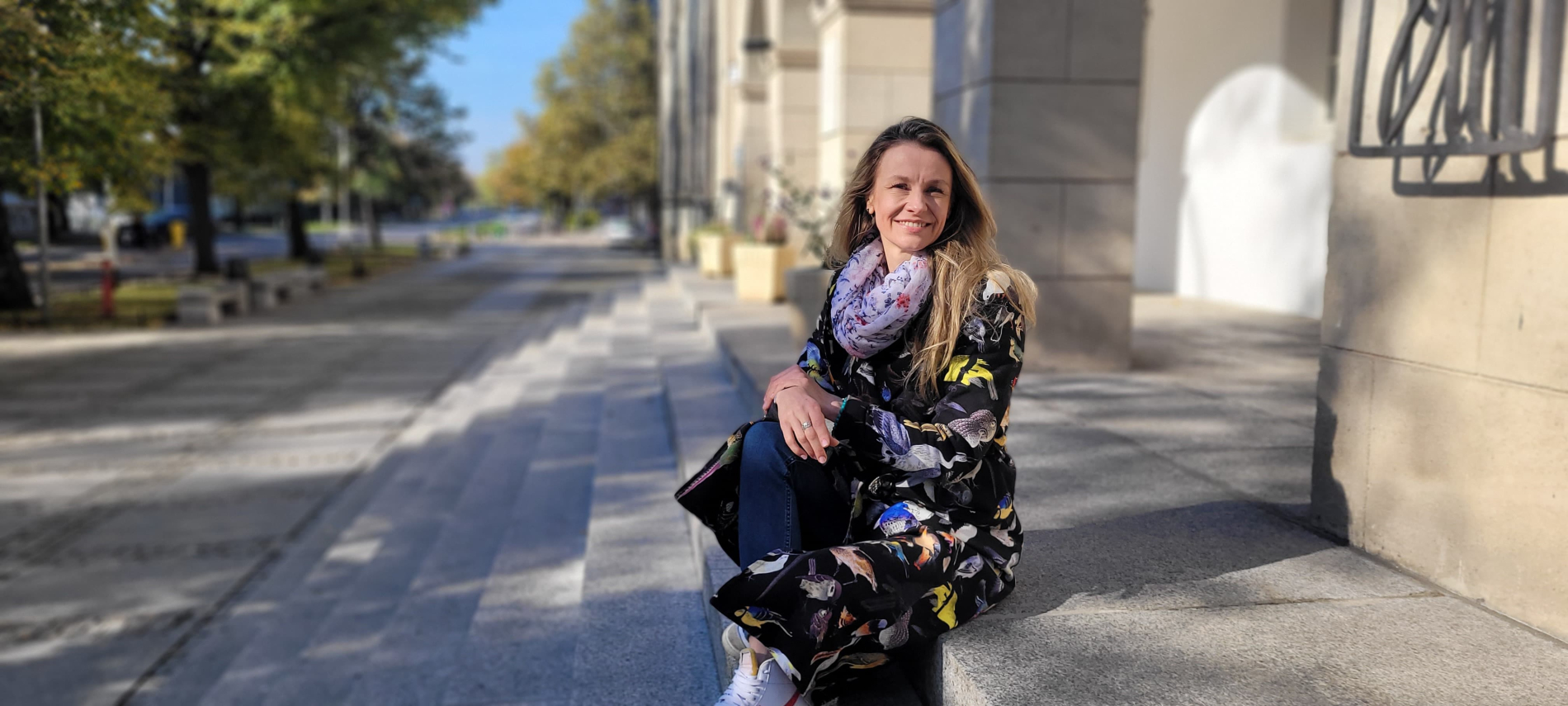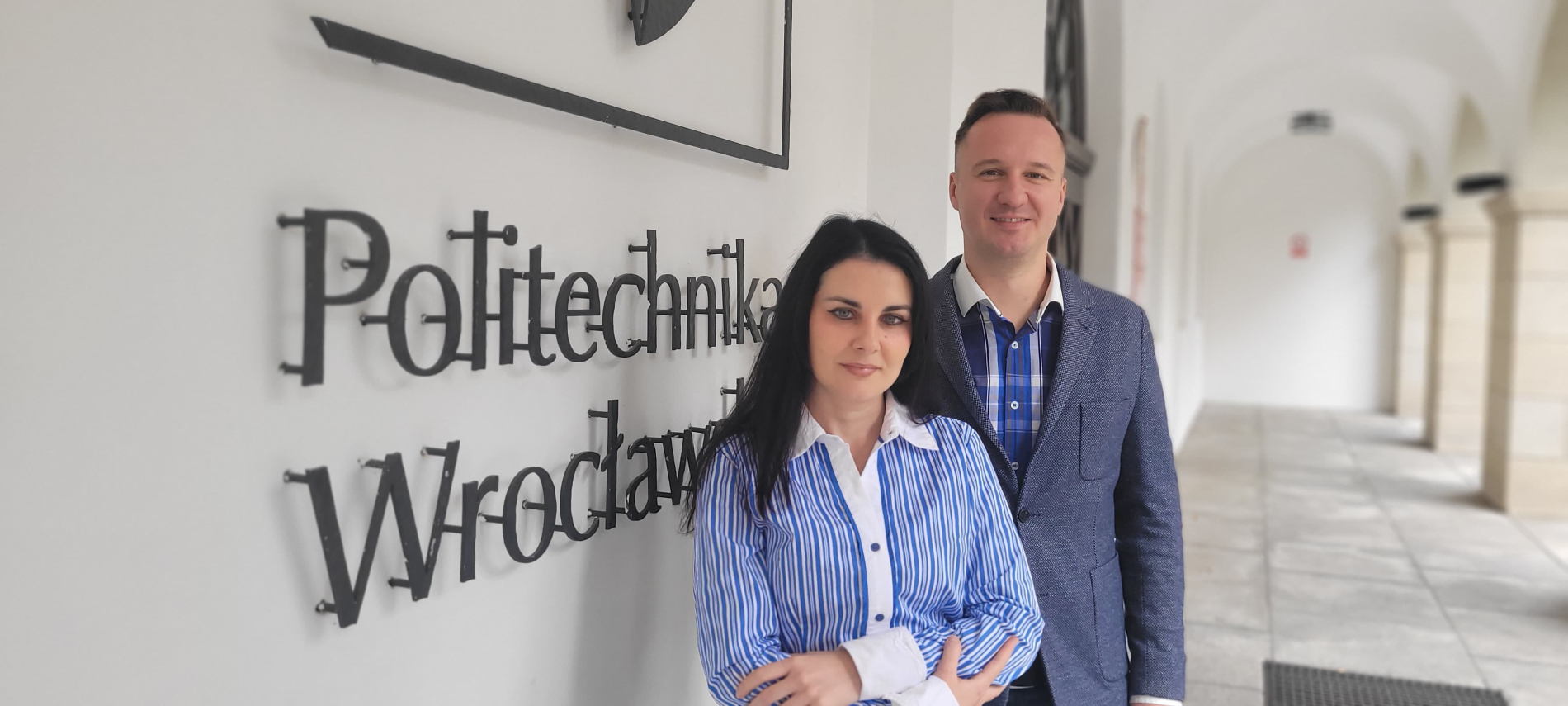YOUR BROWSER IS OUT-OF-DATE.
We have detected that you are using an outdated browser. Our service may not work properly for you. We recommend upgrading or switching to another browser.
Date: 22.10.2024
Each year, across Europe, Erasmus+ Days - a week dedicated to promoting one of the most renowned university exchange programs, which the EU academic community has benefited from for over four decades. Polish students and academics have been participating since the late 1990s. “Studying abroad is a life lesson and an experience like no other. Language skills, international connections, and—perhaps most importantly—getting to know yourself and broadening your horizons come as part of the package,” says PhD. Eng. Marta Laska from the Faculty of Environmental Engineering at Wrocław Tech She has participated in Erasmus+ multiple times—first as a student, and later as a lecturer at Wrocław Tech.
The early days weren't easy. “I went abroad in my fourth year of studies. After a 36-hour journey and a transfer in London, when I got off the bus in central Glasgow with a huge backpack, I was in shock. It was a different world, and I had to settle in and organize myself, but first... I had to communicate, without the extensive internet access we have today. It turned out that the English I had learned in school for years wasn't enough to speak fluently on the streets of Scotland, let alone in lecture halls or in technical language. The first few weeks were tough and stressful, spent thumbing through dictionaries, but day by day it got better. After two semesters I went for a three-month internship at an engineering consulting firm in London,” recalls Marta Laska.
Glasgow was the first, but not the only stop in her European academic journey. She wrote part of her doctoral thesis at the University of Leeds. Later, as a lecturer at Wrocław Tech and the departmental Erasmus+ coordinator. She frequently used the program, training and teaching in Portugal, Scotland, Croatia, Spain, and Finland. Today, she encourages students to take advantage of what Erasmus+ offers. “Studying abroad is a life lesson and an experience like no other. Language skills, international friendships, and—perhaps most importantly—getting to know yourself, discovering new opportunities, and broadening your horizons all come in the package. I returned from these mobilities with an open mind and the awareness that if I could handle it there, I can handle it anywhere,” adds Marta Laska.
On Nonlinear Optics and Photonics in French Angers
PhD. Eng. Alina Szukalska and PhD Eng. Adam Szukalski, a married couple of chemists from Faculty of Chemistry, have also taken advantage of Erasmus+ multiple times, collaborating with research centers in Pisa, Italy, and Angers, France. “Short-term mobilities allow us to continue our research, maintain contacts that usually break off after a grant ends, and use laboratories that aren’t available in Poland. Each trip brings new professional development opportunities, and we come back with new ideas and contacts—it’s like a snowball effect. Additionally, we closely observe the work culture of other nations, and outside of work, we enjoy sightseeing and experiencing new cultures,” say the researchers.
Last year, Adam Szukalski served as a jury member for a PhD defense in France. This year, his wife Alina received the same opportunity. “These are experiences we wouldn’t have gained without the trips and international activity,” they say.
Their next mobilities are already planned. In December, Adam Szukalski is heading to Angers once again to share his expertise in nonlinear optics and photonics with PhD students from two departments—physics and chemistry—at the local university, and to discuss future research projects and joint grants.
The researchers emphasize that one of the program’s great strengths is its simple application process. Since last year, it can be done remotely. The paperwork before and after the trip is completed in just a few simple steps, without the need for lengthy reports.
Erasmus+ – Open for Applications
Erasmus+ is a European Union program that supports educational exchange. It can serve academic staff to teach students at a foreign partner university (ongoing recruitment) or it can be applied for training purposes (the next round of recruitment will start in the coming days). Students can apply for long-term exchanges (minimum one semester, recruitment begins in January 2025), short-term stays (5-10 days, ongoing recruitment), and internships/placements (minimum one month, ongoing recruitment).
All information is available from departmental coordinators and on the CRM website.

Funded by the EU. The views and opinions expressed are solely those of the author(s) and do not necessarily reflect those of the European Union. Neither the European Union nor the grantor is responsible for them.

